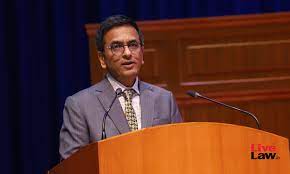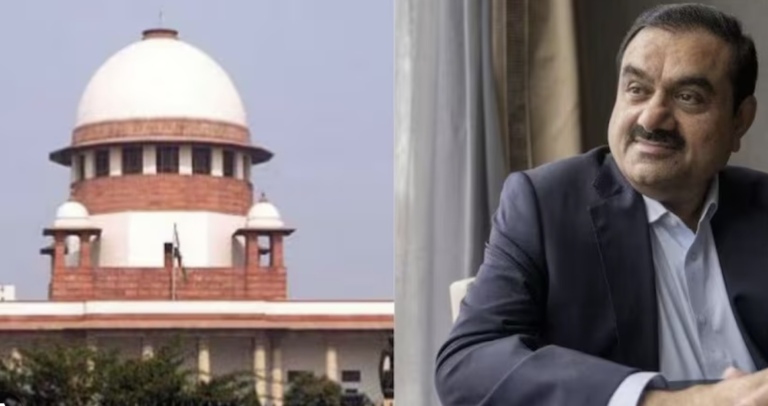
Lawyers should be allowed to work Phones or laptops inside courtrooms: CJI DY Chandrachud

The role of judges in today’s digital age is incredibly complex. As more and more legal processes move online, judges are tasked with ensuring that electronic devices are used appropriately in the courtroom. On Wednesday evening Chief Justice of India DY Chandrachud made a statement that highlighted the importance of balancing technological advancements with legal ethics. During the virtual inauguration ceremony of the administrative block and various e-initiatives of Calcutta High Court CJI DY Chandrachud mentioned that mobile phones are now a common sight in society. He also reminisced about the past when they were not allowed inside many courtrooms. He also stated that judges should allow lawyers to work on their electronic gadgets inside the court and must ensure internet facilities with adequate firewalls so that it is put to genuine and authorized use. This statement reflects the changing nature of legal practice as technology continues to play an ever-increasing role in the profession.
The Chief Justice’s comment came at a time when courts around the country are grappling with the challenges of using technology in the courtroom. While electronic devices have the potential to streamline legal proceedings and make them more efficient they also present new ethical and practical concerns. One of the biggest concerns surrounding the use of electronic devices in the courtroom is the potential for distraction. If lawyers are allowed to use their smartphones, tablets and laptops during proceedings they may become distracted by emails, social media and other distractions. This could lead to a breakdown in focus and could compromise the integrity of the trial.
Moreover, to address this concern Justice Chandrachud suggested that judges should ensure internet facilities with adequate firewalls to prevent unauthorized access to sensitive information. By providing a secure network judges can enable lawyers to use their electronic devices without compromising the integrity of the proceedings. Another concern with the use of electronic devices in the courtroom is the potential for them to be used inappropriately. Lawyers may use their devices to access information that they should not have access to or they may use them to communicate with witnesses or other parties in the case. This could compromise the impartiality of the trial and could lead to legal challenges. To prevent inappropriate use of electronic devices DY Chandrachud suggested that judges should ensure that lawyers only use their devices for genuine and authorized purposes. By setting clear guidelines for device use judges can ensure that lawyers use their devices in a way that does not compromise the integrity of the trial.
The use of electronic devices in the courtroom is also important for ensuring access to Justice. In today’s digital age, many legal processes are moving online and lawyers need access to electronic devices to effectively represent their clients. By allowing lawyers to use their devices in the courtroom judges can ensure that lawyers have the tools they need to provide effective representation. However, the use of electronic devices does not interfere with the proceedings or disrupt the courtroom. Moreover, DY Chandrachud’s statement also reflected the changing nature of legal practices in the digital age. As technology continues to play an increasingly important role in the legal profession judges must ensure that it is used appropriately and in accordance with legal ethics. Bu allowing lawyers to use their electronic devices in the courtroom judges can ensure that lawyers have the tools they need to provide effective representation while maintaining the integrity of the trial. However, judges must also be vigilant in preventing the inappropriate use of electronic devices and ensuring that they do not interfere with the legal process. By striking a balance between technology and legal ethics judges can ensure that justice is served in a fair and impartial manner.







